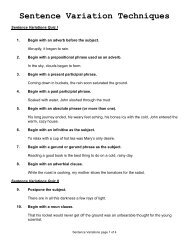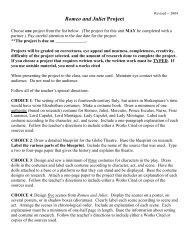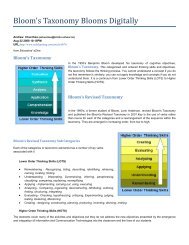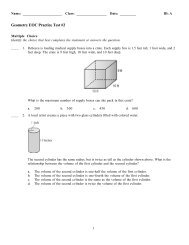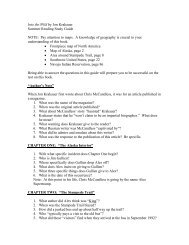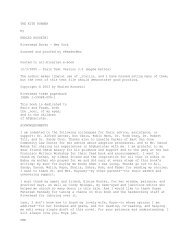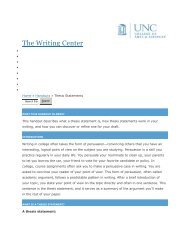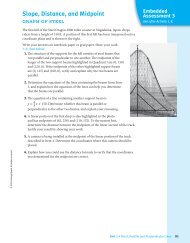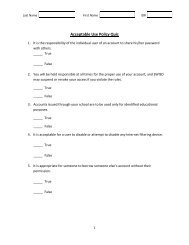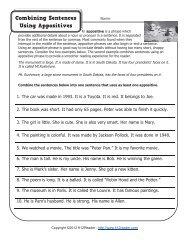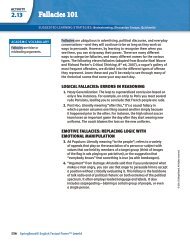Unit 1.pdf - Southwest High School
Unit 1.pdf - Southwest High School
Unit 1.pdf - Southwest High School
Create successful ePaper yourself
Turn your PDF publications into a flip-book with our unique Google optimized e-Paper software.
Activity 1.15<br />
continued<br />
In order to better understand Cultural Criticism, you will examine two<br />
poems. The first poem, by Rudyard Kipling, affirms the concept of<br />
imperialism. In contrast, Henry Labouchère’s poem, written in response<br />
shortly after Kipling’s poem was published, questions imperialism. As<br />
you read and discuss the two poems, note how the perspective of the<br />
speaker, the imaginary voice of the author, influences what the speaker<br />
has to say about the concepts of “imperialism” and/or “colonialism.”<br />
My Notes<br />
P o e t r y<br />
A b o u t t h e A u t h o r<br />
Rudyard Kipling was a British author known for his support of British<br />
colonialism and imperialism. Born in Bombay (now Mumbai), India, in<br />
1865, Kipling was educated in England; but he returned to India where<br />
he worked for seven years as a journalist. Kipling’s poems, novels, and<br />
short stories reflect the Anglo-Indian experience. Kipling was awarded<br />
the Nobel Prize for Literature in 1907. His children’s books, including<br />
Just So Stories (1902) and Kim (1901) are considered classics.<br />
© 2011 College Board. All rights reserved.<br />
by Rudyard Kipling<br />
McClure’s Magazine (12 Feb. 1899)<br />
Take up the White Man’s burden—<br />
Send forth the best ye breed—<br />
Go bind your sons to exile<br />
To serve your captives’ need;<br />
To wait, in heavy harness,<br />
On fluttered folk and wild—<br />
Your new-caught sullen 1 peoples,<br />
Half devil and half child.<br />
Take up the White Man’s burden—<br />
In patience to abide,<br />
To veil the threat of terror<br />
And check the show of pride;<br />
By open speech and simple,<br />
An hundred times made plain,<br />
To seek another’s profit,<br />
And work another’s gain.<br />
5<br />
10<br />
15<br />
1<br />
sullen: moody; sulky<br />
<strong>Unit</strong> 1 • Perception Is Everything 49





